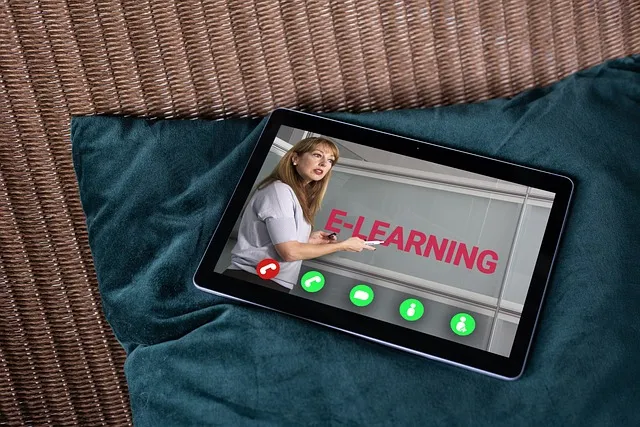Confidential computing is revolutionizing data protection in humanitarian aid by securing sensitive information through encrypted environments, even with unreliable internet connections. This technology prioritizes data integrity and privacy, addressing challenges faced by aid workers and mitigating cyber threats from hackers targeting humanitarian networks. By facilitating anonymous web browsing for both aid workers and hacker communities, it offers a secure virtual shield while granting unrestricted access to vital resources, enhancing humanitarian efforts globally. Implementing advanced tools like secure multi-party computation and zero-knowledge proofs ensures robust security frameworks for sensitive data sharing, paving the way for a safer digital future.
“In an era where data privacy is paramount, Confidential Computing emerges as a transformative force in humanitarian aid. This revolutionary approach prioritises security while enabling aid workers to access and share sensitive information securely.
This article explores ‘Anonymous Web Browsing for Hackers’ Communities’, delving into the unique role it plays in safeguarding data. We navigate the challenges and benefits of implementing this technology, offering insights on best practices and tools that foster a secure future for humanitarian efforts worldwide.”
- Understanding Confidential Computing: A New Paradigm for Humanitarian Aid
- The Role of Anonymous Web Browsing in Securing Sensitive Data
- Challenges and Benefits of Implementing Anonymous Browsing for Aid Workers
- Building a Secure Future: Best Practices and Tools for Confidential Computing Communities
Understanding Confidential Computing: A New Paradigm for Humanitarian Aid

Confidential computing represents a paradigm shift in data processing, focusing on protecting sensitive information even while it’s being used. In humanitarian aid, where workers often deal with private and confidential data—from personal health records to cultural heritage documents—this technology offers unprecedented security guarantees. By leveraging encrypted computing environments, anonymous web browsing for hackers’ communities becomes not only possible but essential for maintaining privacy and safety.
This innovative approach ensures that data remains secure at all times, even while being processed by remote servers, without the need for data to leave the device. This is particularly valuable in humanitarian contexts where internet connections may be unreliable or compromised, and aid workers need to make critical decisions based on sensitive information with full confidence in data integrity and privacy.
The Role of Anonymous Web Browsing in Securing Sensitive Data

In the realm of confidential computing, securing sensitive data is paramount for humanitarian aid workers dealing with critical information about vulnerable populations. One effective tool in this arsenal is anonymous web browsing. By employing tools like Tor and VPNs, aid workers can navigate the internet discreetly, protecting their digital footprint from prying eyes, including those of hackers’ communities targeting humanitarian networks.
This practice ensures that even when accessing confidential resources or communicating sensitive data, the user’s identity remains hidden, thereby mitigating risks associated with cyber threats. It’s a robust layer of security that enables aid workers to focus on delivering essential services without worrying about potential digital surveillance or data breaches.
Challenges and Benefits of Implementing Anonymous Browsing for Aid Workers

Implementing anonymous browsing for aid workers presents a unique set of challenges and benefits, especially in their often dangerous and sensitive work environments. On one hand, enabling anonymous web browsing can protect the privacy and security of humanitarian aid workers, safeguarding them from potential online surveillance or tracking by hostile entities, particularly when operating in conflict zones or areas with limited digital rights. This feature is akin to a secure virtual shield, shielding their activities and identities.
Moreover, it facilitates access to a broader range of information and resources, unfiltered by geographical restrictions or government censorship. For aid workers, this means quick access to critical data, research, and communication channels that can enhance their effectiveness on the ground. It’s akin to possessing an invisible key, unlocking doors to diverse perspectives and tools that can significantly improve humanitarian efforts without compromising security, especially in hacker communities where anonymous browsing is a prevalent practice.
Building a Secure Future: Best Practices and Tools for Confidential Computing Communities

As we navigate an increasingly digital world, securing sensitive data is paramount, especially within humanitarian aid sectors. Confidential computing offers a revolutionary approach to achieving this by enabling anonymous web browsing for hackers’ communities while ensuring privacy and security. By adopting best practices and leveraging advanced tools, these communities can build a robust framework that protects user identities and prevents unauthorized access.
One key practice involves employing secure multi-party computation techniques, allowing collaborative data analysis without revealing individual inputs. Additionally, utilizing zero-knowledge proofs enables users to prove computations are correct without disclosing underlying data. These methods form the backbone of a secure future, fostering trust and enabling effective information sharing while maintaining strict confidentiality.
Confidential computing, particularly through anonymous web browsing, offers humanitarian aid workers a transformative tool to secure sensitive data in challenging environments. By implementing best practices and leveraging specialized tools, aid organizations can enhance data privacy, foster trust among beneficiaries, and ensure the continuity of critical services. Embracing anonymous browsing for hackers’ communities isn’t just about security; it’s about empowering humanitarians to navigate complex landscapes with integrity and discretion, ultimately strengthening their impact in global aid efforts.
